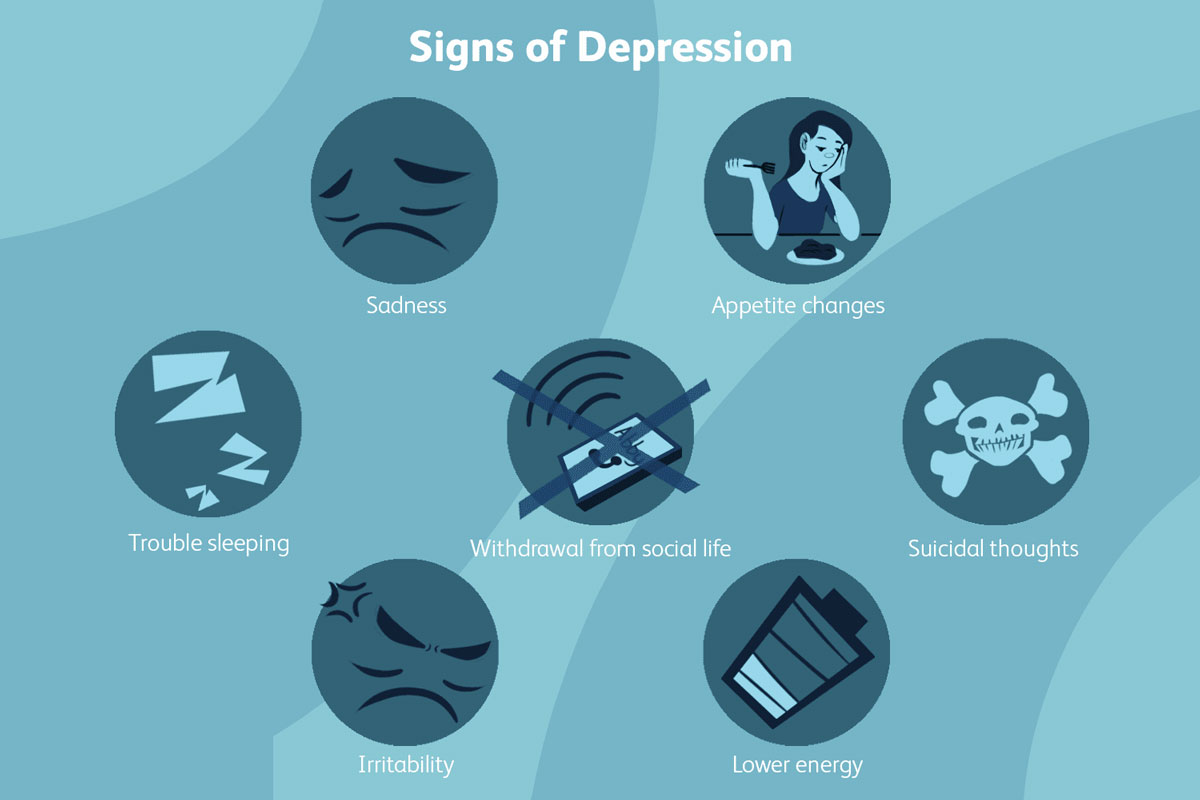In today’s fast-paced world, we neglect our mental health the most. Just like our physical Health, our mental Health also plays a crucial role in our overall well-being. Mental Health should be given priority. Short breaks during work are acceptable and beneficial to mental well-being. So take breaks when required. Additionally, taking a few minutes to breathe and walking or sitting can significantly contribute to positive well-being.
Today, most people talk about mental Health, but there was a time when people lacked awareness and understanding of this critical aspect of well-being.
Most of us focus on our physical Health, but taking care of our mental and emotional well-being is equally important. Taking steps to improve our mental Health can profoundly impact our overall quality of life and enable us to navigate life’s challenges with greater resilience and positivity.
In this article, we will explore five critical tips that can help you enhance your mental Health and well-being. By incorporating these practices into your daily life, you can cultivate a healthier mind and enjoy a more balanced and fulfilling existence.
What is mental well-being?
Mental Health is a wide spectrum associated with our overall well-being. We might use it to describe multiple things, like how we feel, talk or manage daily life.
Good mental Health is more than happiness. It can be defined as our overall state of well-being. Importantly, Anyone can have mental health problems despite their age. According to a report, one in every five Canadians experiences mental illness every year. While this ratio can be shocking, we can overcome the mental illness challenges by following specific tips.
Impact of Mental Health
Your mental Health plays a crucial role in your overall well-being. Being in good Health keeps you fit and prevents severe ailments. A study shows positive well-being can lower the risk of heart attacks and strokes. On the other hand, negative mental Health can lead to several physical and psychological health concerns.
Chronic conditions:
One of the most common side effects of poor mental health is chronic conditions. The typical chronic conditions due to mental conditions include diabetes, asthma, cardiovascular issues and joint pain.
Sleep disorders:
Poor mental health can also lead to sleep disorders like insomnia and sleep apnea. Insomnia is a sleep condition that causes trouble in sleeping and stays you asleep. Almost 70% to 80% of people with poor mental health face sleeping problems. Also, sleep problems can make mental health conditions worse.
Importance of prioritising mental well-being
Taking care of your mental Health is the best thing you can do for your overall well-being. It is related to various aspects of our lives. The human mind is complex and powerful, capable of handling several tasks. We can be more focused and achieve complicated goals with good mental Health. But like any other part of our body, the human mind also needs care and attention for individual Health and bloom in the best form.
Mental Health and Physical Health are co-related, and any type of mental stress also affects our physical Health, causing problems like cardiovascular, weakened immune Health and digestive ailments. Additionally, a healthy mind can be efficient and productive when required for better output in our personal and professional lives.
Here are a few reasons for prioritising mental well-being.
Improved quality of life:
With good mental Health, you experience a more satisfied life. When our minds are healthy, we can enjoy things fully and be more resilient. For example:- we appreciate every little activity of our lives, have better relationships and are optimistic about future goals. Even schools and colleges should promote mental wellness programs and raise awareness.
Improved productivity:
With a healthy mindset, we can focus better and manage the task efficiently in a short amount of time. Also, it is found helpful in coping with stress.
Improved Physical Health:
Since our mental Health is associated with our physical Health, it also impacts our lives. Research suggests that people with good mental Health are less likely to suffer from chronic stress. It is related to the healthy habits we make in our day-to-day lives.
Greater resilience:
Life is a roller-coaster where we face both positive and negative experiences in challenging times, only our mental Health gives us the courage to cope effectively. Hence, better Health is required to manage stress and setbacks and maintain a positive approach to life.
Better relationships:
Better mental Health lays the foundation for the physical and other aspects of our lives and improves our relationships. The possible reason is that we can communicate better and understand people when we feel good mentally. It also helps us to make a greater connection with the people. Also, we are more empathic and understand others’ boundaries.
Tips for Better Mental Health
Plan Rest Breaks:
We ignore taking breaks to save time and accomplish our tasks faster, negatively affecting us. Taking short breaks wouldn’t cause any losses to your work. In fact, you will work with better energy and concentration.
Still, if you find it difficult to take breaks, make a schedule to your calendar and anticipate it. Self-relaxation is as necessary as other work, so don’t postpone it. Giving yourself 5–10 minutes of rest can make you more productive.
Rest breaks are essential to maintaining a healthy mental state, particularly in today’s fast-paced and challenging life. These planned rest periods are crucial for recharging and replenishing our mental energy, reducing stress, and increasing overall productivity.
While the specific timing and duration of these breaks may vary based on individual circumstances and workload, one principle remains constant: every effort requires a corresponding comfort or break.
By recognising the importance of incorporating rest breaks into our routines, we can prioritize our mental well-being and ensure a more balanced and sustainable approach to our daily lives.
Learn and Find Relaxation:
Staying relaxed is one of the crucial aspects of mental well-being; you need to figure out the best way to remain relaxed. It doesn’t matter whether you love to take a long shower, listen to music, go on an outing, or do any other relaxation technique; the most important thing is prioritizing your well-being.
Everyone should try different approaches to find the perfect relaxing moment for them. Some people love to play sports, while others enjoy exercising and staying focused, so do what works for you.
Still, if you are confused about what to do, start meditation and get gentle peace. Regular practice with such activities will improve in the upcoming years.
Friends and Family:
Friends and Family are essential parts of our lives for psychological stability. You should build more interaction with your friends and Family, as it will help enhance the feeling of protection.
When we talk about social relationships, we engage in live chats on social media platforms. It is about spending real time together with friends and Family. You will get enough opportunities to connect with the people around you.
Set up a get-together with your buddies and try to get to know each other more deeply. Having support from Family and friends when under stress will do wonders for you. Always make sure not to feel lonely when going through stress and difficult times.
Practice Stress Management Techniques:
Stress is a part of our lives, and dealing with it can be challenging. But the practice of stress management techniques can work for you amazingly. You must challenge yourself and find healthy mechanisms that work for you, such as breathing exercises, meditation, yoga, or other creative exercises.
Getting engaged in physical activities can also improve your mental Health. Daily exercising helps your physical Health and prepares you for your mental Health. You can engage in any form of exercise and bring positive changes in your life.
Regular exercise can help release endorphins, natural mood-boosting chemicals in the brain. Find activities you enjoy, such as walking, jogging, yoga, dancing, or any exercise that gets your body moving and helps you release tension.
Set Boundaries and Practice Time Management:
Setting boundaries and practising time management can help you stay physically fit for a long time. It will be constructive to reduce overall stress that builds due to extreme workload and hectic schedule.
You should learn to say no to the task that burns you mentally and try to give priority to essential tasks associated with their importance. Start breaking all the tasks into small tasks, then follow the steps to proceed, and provide enough time for rest.
You need to set limitations for your work and learn to delegate the tasks that others could do. Delegating work helps reduce your workload and strengthens the focus of teamwork.
Final Words
In conclusion, prioritising is essential for leading a fulfilling and balanced life. By incorporating these five crucial tips for better mental Health, you can take proactive steps toward nurturing your well-being.
Remember to prioritise self-care, maintain a balanced lifestyle, cultivate a support network, practice stress management techniques, and seek professional help. Each individual’s journey to better mental health is unique, so finding what works best for you and making it a constant part of your routine is essential.
By caring for your mental Health, you empower yourself to navigate life’s challenges with resilience, improve your overall quality of life, and foster a positive mindset. Start implementing these tips today and embark on a path toward a healthier and happier you.
FAQs:-
Q. What is mental health?
A. Mental Health is a person’s emotional, psychological, and social well-being. It affects how people think, feel, and act and influences how they handle stress, relate to others, and make choices. It is essential at every stage of life and plays a vital role in overall well-being.
Q. What are some common signs of poor mental Health?
A. Common signs can vary but may include the following:
- Persistent feelings of sadness or hopelessness.
- Changes in appetite or sleep patterns.
- Low energy levels.
- Difficulty concentrating.
- Withdrawal from activities and relationships.
- Excessive worry or anxiety.
- Mood swings.
If you are concerned about it or someone else, it is advisable to seek professional help.
Q. How can I improve my mental Health daily?
A. You can incorporate several strategies into your daily routine to improve your mental Health. These include practising self-care activities such as exercise, getting enough sleep, eating a balanced diet, engaging in activities you enjoy, setting boundaries, managing stress, and seeking social support. Finding what works best for you and making these practices a consistent part of your life is essential.
Q. When should I seek professional help for my mental Health?
A. It’s essential to seek professional help when experiencing persistent or worsening symptoms that significantly interfere with your daily functioning and quality of life.
If you are having thoughts of self-harm or suicide, it is critical to reach out to a professional or a helpline immediately. Mental health professionals can provide an accurate diagnosis, offer therapy or counselling, and guide you toward appropriate treatment options.



















